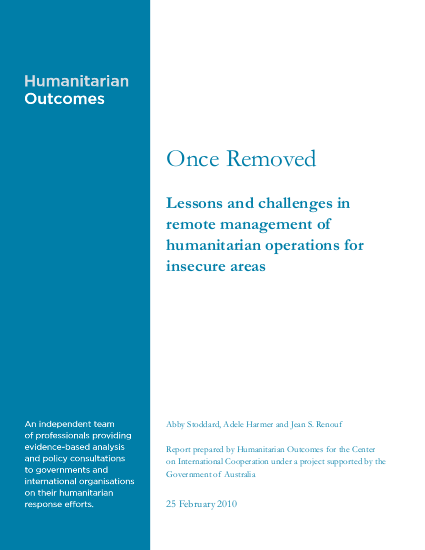
The report concludes with a set of options and potential ways forward for the international humanitarian community. It emphasises the urgent need for greater attention and resources to be devoted to developing a holistic, ‘whole of agency’ approach to policy guidance and practical tools for this increasingly common yet unexamined practice. It also urges action for strengthening the duty of care to national and local staff and extending this to national partner organisations. This requires better and more-differentiated risk assessments for national and local staff, and capacity building measures to enhance both their ability to implement programmes and to bolster their security. The most promising examples of remote management found in this research involved coordination structures that were rooted in the local context and exhibited the potential for further, self-generated development in localised humanitarian action.